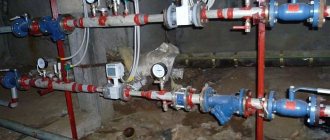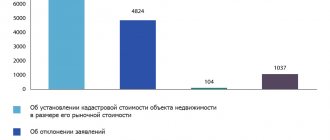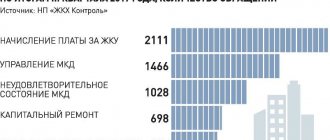Features of accounting in a housing construction cooperative
Accounting for housing cooperatives has a number of features related to the activities of this organization. Housing cooperative expenses are expenses planned for the current year .
These costs mainly consist of:
- Costs of common property and major repairs of houses.
- Current repairs and property maintenance costs.
- Funds that are actually spent on repairs of an apartment building.
Housing cooperative income is:
- Various receipts.
- Membership fees and other mandatory payments.
- Receipts for which the housing stock is repaired, for which benefits and certain types of services are provided.
- Income from business activities.
The Ministry of Finance clarified the procedure for accounting for income of housing cooperatives using the simplified tax system
Thus, the amounts of payments by homeowners for housing and communal services received by the housing cooperative should be taken into account as part of its income when determining the tax base for the tax paid in connection with the application of the simplified taxation system.
The letter notes that the housing cooperative, which applies the simplified tax system, when determining the tax base, does not take into account entrance fees, membership fees, shares, donations, as well as deductions for the formation of a reserve for repairs and major overhauls of common property, which are made to the homeowners’ association by its members.
We recommend reading: SMS about rent arrears
Should I hire a specialist?
In view of the fact that financial accounting in housing cooperatives is not a matter of choosing any of the available accounting policies, but of developing your own accounting methods, it is better to entrust this matter to a specialist. The development of financial accounting policies in housing cooperatives requires a separate accounting specialization. The employee must independently interpret the financial essence of the enterprise’s activities and develop a way to reflect this activity in the reporting
Important! Accounting for housing cooperatives requires the use of professional judgment; this section of accounting is considered quite complex.
Distribution of duties
The responsibilities of both the accountant and the chief accountant in the housing cooperative are approved in the job description, which is developed individually by the management of each organization. The competencies and responsibilities of employees must be reflected in the employment contract.
Chief Accountant
An example of a job description for a chief accountant in a housing cooperative:
- The accountant is guided by the Constitution of the Russian Federation and the charter of the housing cooperative, as well as decisions of superiors and general decisions.
- The employee must have appropriate education.
- An employee is appointed and dismissed by decree of the head of the board.
- Reception and delivery of cases is carried out after an audit carried out by a special commission.
- If an employee is temporarily absent, then one of the employees of the audit commission or one of the employees of the board of directors is appointed instead by order of management.
The responsibilities of the chief accountant in a housing cooperative are as follows::
- Organize financial accounting of the Cooperative and control the consumption of resources and safety of property.
- Develop accounting policies.
- Organize work on accounts and documents.
- Monitor the correct maintenance of accounting and reporting in the Cooperative.
- Keep records of property and incoming funds.
- Calculate payments for members of the enterprise.
- Monitor the correct execution of documents.
- Analyze the economic activities of the Cooperative.
- Prevent waste and waste.
- Prepare materials on thefts and shortages.
- Contribute to the accumulation of funds in the account.
- Place available funds in bank deposits.
- Ensure staff discipline.
- Develop and implement planning and accounting documentation.
- Develop balance sheets and other reporting, submit documents to special authorities.
- Receive residents of the house four times a month for 2 hours at a time established by the Board of the Cooperative in the premises of the board of housing cooperatives.
- Provide methodological assistance to the management of the Cooperative regarding financial accounting.
- Improve your qualifications.
What to do if one employee is responsible for finances?
Accounting can also be entrusted to the chief accountant in a housing cooperative. If there is only one accounting employee in a housing cooperative, then his responsibilities are identical to those of the chief accountant.
Financial statements
Housing cooperatives are required to submit annual financial statements based on all data for the year, as well as quarterly and monthly statements. The report must be approved in accordance with the rules established by the company's constituent documents. It is important to establish what is the source of income in the enterprise.
For housing cooperatives this is:
- Membership fee.
- Share contributions.
- Subsidies from the budget.
- Utility payments from homeowners.
- Other income.
Housing cooperative expenses are as follows::
- To manage the Cooperative.
- For public utilities (water supply, sewerage).
- For heating.
- Garbage removal and area cleaning.
- TV antennas.
Housing cooperatives, like any legal entity, are required to submit financial statements. The balance sheet for housing cooperatives differs in that it contains data on contributions from homeowners: shares, entrance fees, membership fees. The financial report of a housing cooperative is a document that shows the turnover of funds received from future apartment owners from the moment of joining the housing cooperative.
Important! After the owners have paid all the fees, the housing cooperative becomes an HOA.
Accounting for a cooperative provides details for each shareholder, all data is summarized in the final report.
What are housing cooperative tariffs and what are they set for?
Tariffs are set on the basis of one document - a list and frequency of work and services related to the maintenance and repair of common property. Housing cooperative tariffs are needed to determine the cost only of work in a given field of activity. Not in any other areas.
Technical and economic information about an apartment building helps to calculate the costs for each specific object.
It’s good if this document is detailed - then the calculation will allow you to get as much information as possible. This way, specialists will have more freedom when calculating tariffs in the future.
But you can only get by with an aggregated calculation if the list and frequency of work are determined only in general terms.
Government recommendations provide practical implementation of each of these options. In addition, the following data is relevant:
- Tax and fee rates determined by current legislation.
- The cost of fuel and utilities, construction work.
- Payment for housing and communal services based on the tariff schedule.
- Labor costs of workers with the first category.
List of documents that a housing construction cooperative must submit
Standard package
Based on paragraph 1 of Art. 6 of the Law of December 6, 2011 No. 402-FZ of the Criminal Code of Housing and Communal Services, like any other legal entity, is required to keep accounting records and submit reports. The financial statements of the management company include :
- Balance sheet.
- Income statement.
- Explanations for the Report and Balance Sheet in text or tabular form.
- Statement of changes in equity.
- Cash flow statement.
Such a list is established by part 1 of article 14 of the Law of December 6, 2011 No. 402-FZ, paragraphs 2 and 4 of the order of the Ministry of Finance of Russia of July 2, 2010 No. 66n. If the management company is a small enterprise, then it submits only the Balance Sheet. (clause 85 of the Regulations approved by order of the Ministry of Finance of Russia dated July 29, 1998 No. 34n). If the management company uses a simplified accounting procedure (clause 2, part 4, article 6 of Law No. 402-FZ of December 6, 2011), then financial statements must be submitted using simplified forms.
Established for this type of organization
Any non-profit organization is obliged to carry out financial accounting and submit reports annually, in accordance with the law “On Accounting.” When using the simplified tax system, housing cooperatives are not exempt from the obligation to submit reports to the tax authority and Rosstat.
List of documents:
- Balance sheet.
- Report on the intended use of funds.
- Statement of financial results (in the case of business activities).
How is accounting carried out in housing cooperatives? Postings, taxes, tariffs and estimates in accounting
Any housing cooperative belongs to non-profit, non-governmental organizations , just like HOAs. They are created in order to jointly operate and manage the property in the condominium. Such organizations cannot pursue the goal of making a profit from their activities. This is stated in the Civil Code of the Russian Federation, paragraph 1 of Article 50.
1. Legal entities can be organizations that pursue profit-making as the main goal of their activities (commercial organizations) or do not have profit-making as such a goal and do not distribute the profits between participants (non-profit organizations).
What are the wiring?
Let's look at the basic accounting entries in a housing construction cooperative. The main account that appears in the accounting department of the housing cooperative is account number 86 , Targeted financing.
This account includes:
- Membership shares.
- Contributions from members of the cooperative for the maintenance of property.
- Payments for utilities.
- Funds coming from the budget.
- Contributions from investors and sponsorships.
Income from business activities is reflected using account number 90 - Sales, and other income and expenses - account 91 - Other income and expenses. Payments to customers are made using account number 62 – Settlements with customers and clients. Targeted receipts are posted to account 86 - Targeted financing and account 76 - Settlements with debtors and creditors. The target budget is spent on accounts 20 or 26 - general business expenses.
Estimate - what is it?
In accordance with Part 3 of Art. 148 of the Housing Code of the Russian Federation, the board of housing cooperatives must annually submit an estimate of income and expenses . This document is approved by a meeting of members of the Cooperative and serves as the basis for financing for the next year. The main point is costs. This document discusses the feasibility of certain costs for the activities of housing cooperatives.
If the Cooperative does not conduct business and does not have any income other than membership fees, then drawing up an estimate is pointless. In this case, income will be determined by expenses.
Reference! If there is a commercial activity of housing cooperatives, an estimate is drawn up, because in this case, income exceeds expenses, and it is possible to reduce membership fees. When spending funds, the accountant is guided by the estimate.
The document approves standard and actual expenses and identifies deviations of actual expenses from standard ones. The estimate is an element of systemic financial accounting and a document characterizing the state of the economic activity of the enterprise. The estimate must correspond to the level of wages in the region for housing cooperative workers, staffing levels, prices for work and property maintenance, and not depend on the amount of income of the enterprise.
Read useful articles about housing cooperatives and membership in the organization. Find out how to fill out applications and certificates at the housing cooperative, as well as how housing cooperatives differ from other forms of management.
How does an HOA, in a simplified manner, keep records of income and expenses (Zhuravleva V
To make it easier to separate the amounts taken into account for taxation and those not taken into account, you can allocate them to different sub-accounts. To do this, develop your working chart of accounts in such a way that you can take into account income depending on the sources of income, and costs - by analogy with the sections of the estimate.
On the other hand, revenue from business activities, which can be conducted in accordance with Art. 152 Housing Code of the Russian Federation. In addition, under certain conditions, taxable income is the amount of utility payments that come to you from apartment owners. Therefore, the Tax Code contains a requirement to keep separate records of both income and expenses made within the framework of targeted revenues (clause 14, clause 1, article 251 of the Tax Code of the Russian Federation). If there is no separate accounting, all funds received will need to be included in the tax base according to the simplified tax system. As you can see, there are many problems, and in this article, using specific examples, we will look at how to organize accounting and tax accounting in an HOA.









